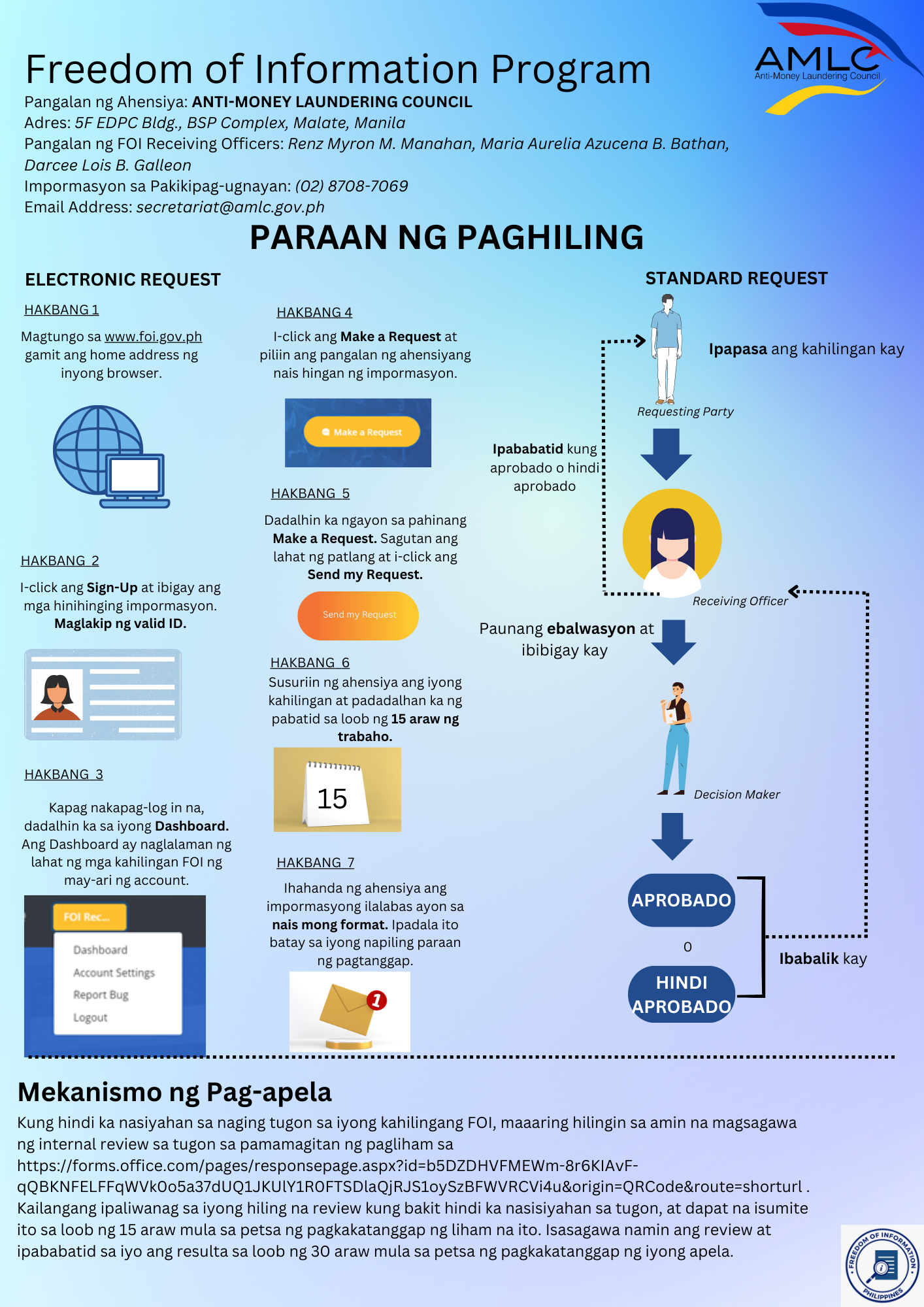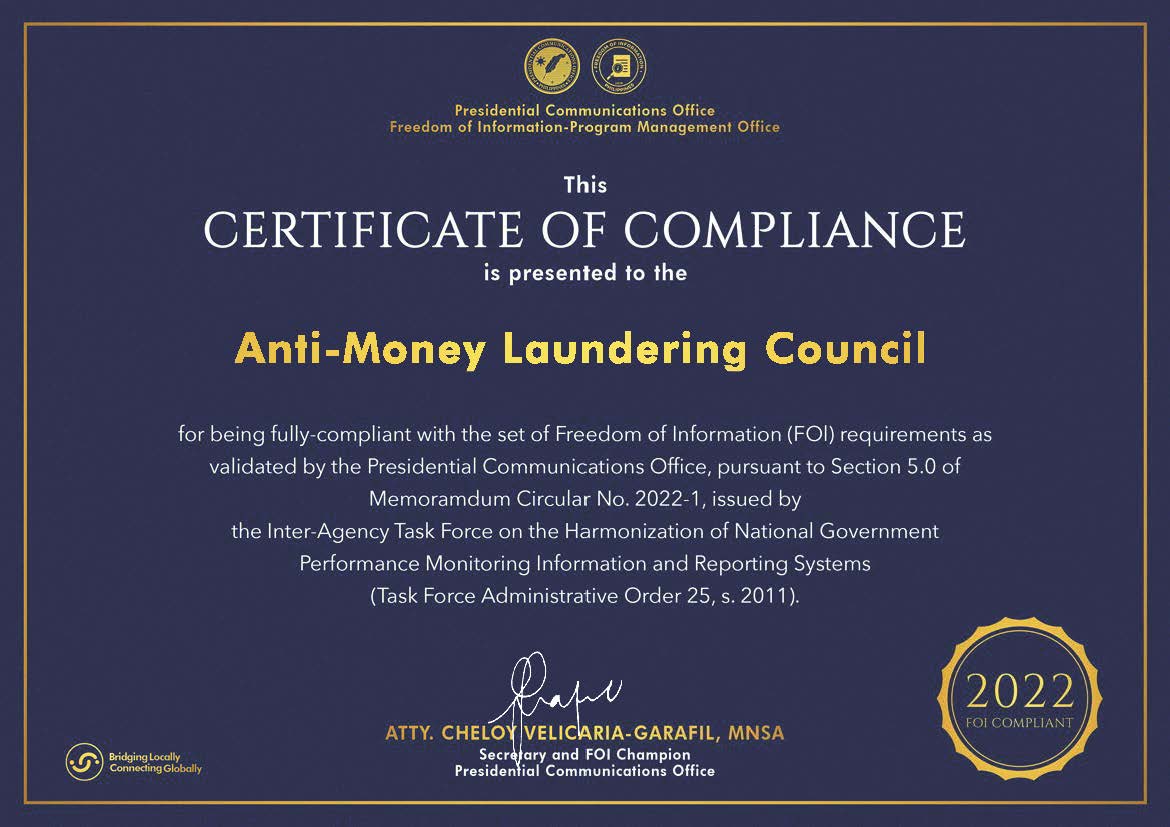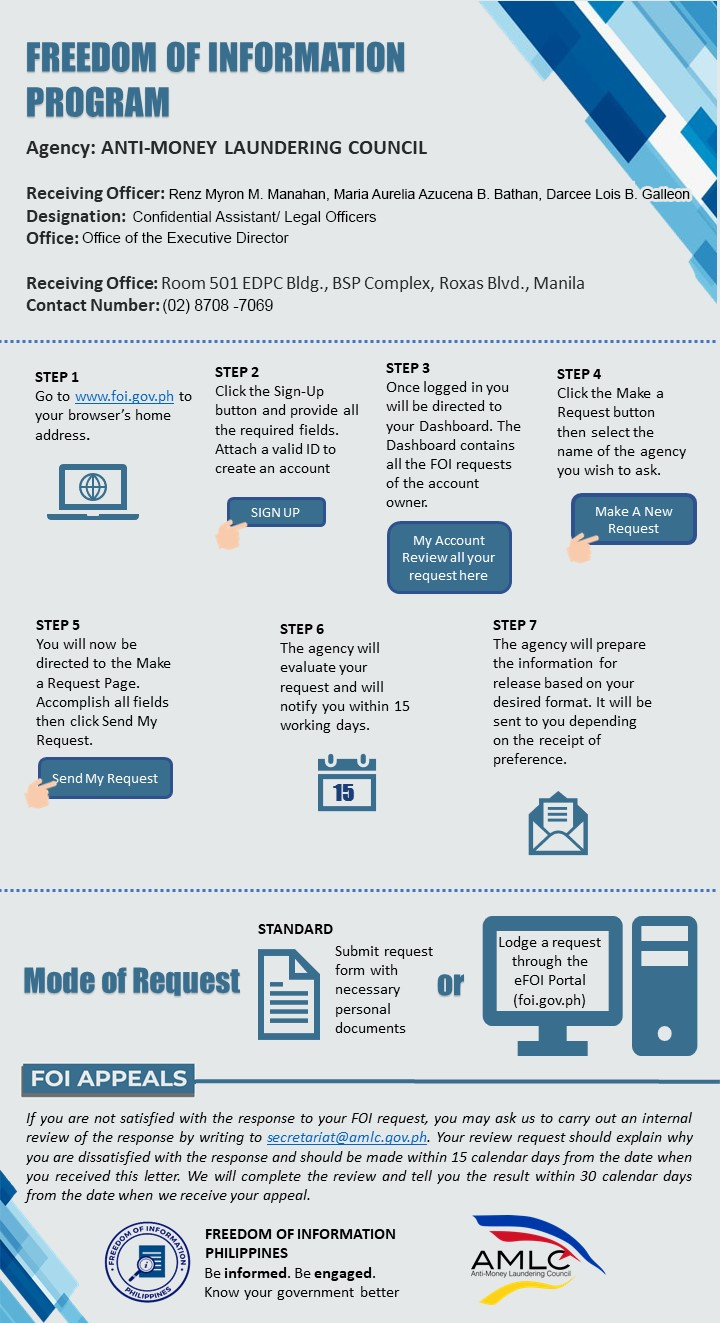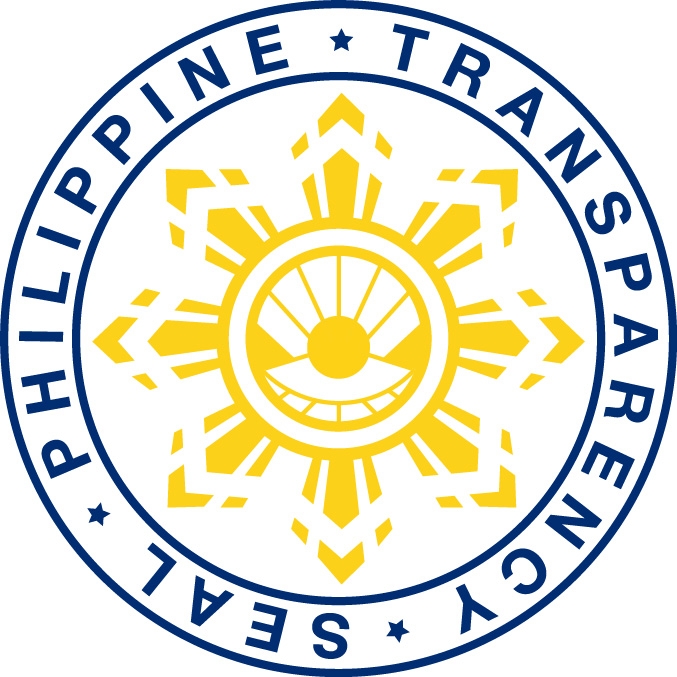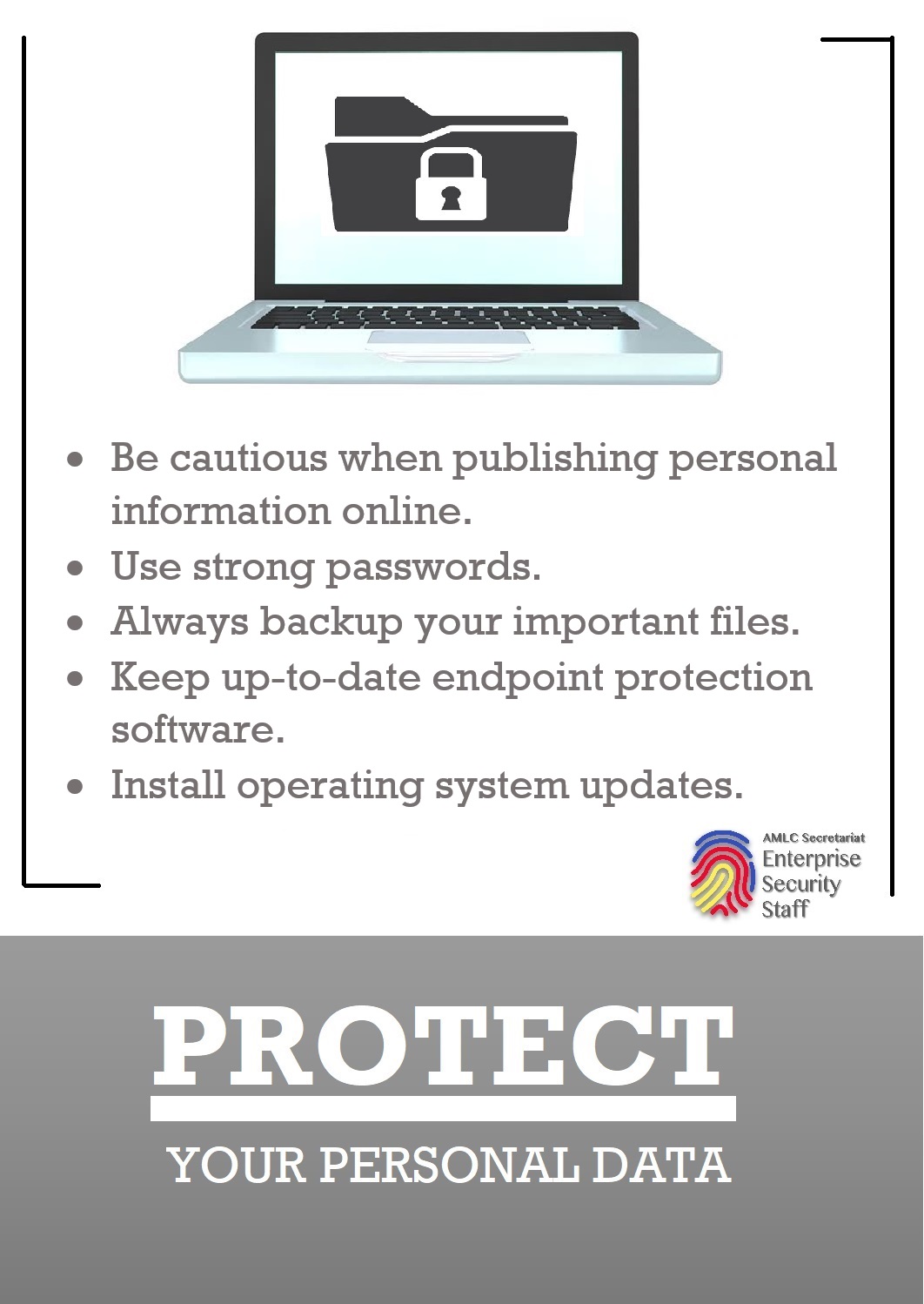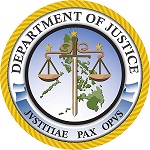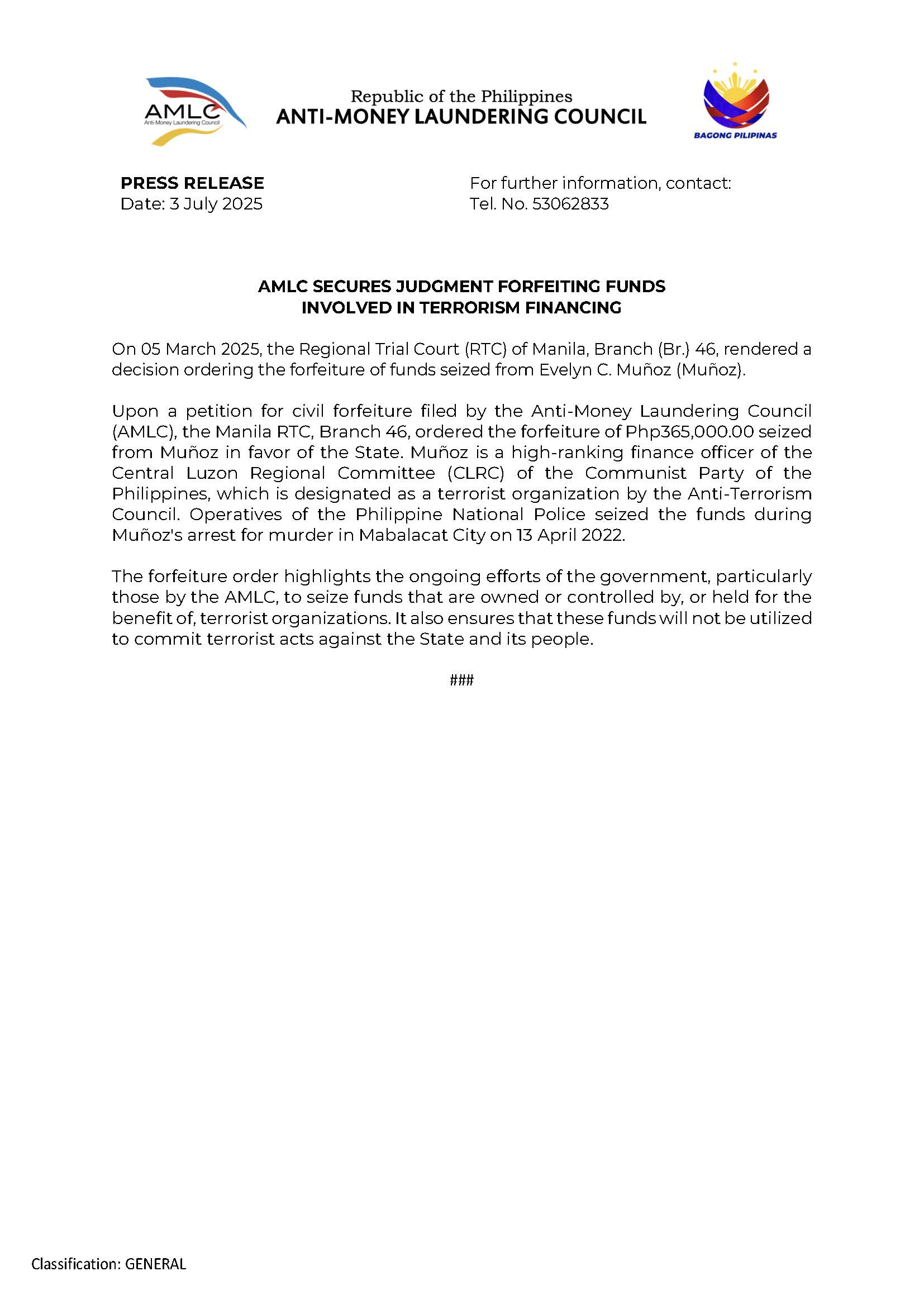Advisory on the Declaration of 20 & 23 June 2025 as Non-Reporting Days
Pursuant to Item V-B (1), Part 1 of the 2021 AMLC Registration and Reporting Guidelines (ARRG), 20 & 23 June 2025 are declared as non-reporting days and shall be excluded from the counting of the prescribed reporting period, accordingly.
Should you have any queries, you may refer to the ARRG Hotlines posted on the AMLC Website.
AMLC OBTAINS JUDGMENT FORFEITING PROPERTIES OF ILLEGAL DRUG TRAFFICKERS (2)
UnpublishedMuntinlupa, Philippines - On 24 February 2025, the Regional Trial Court of Muntinlupa, Branch 203, rendered a judgment ordering the forfeiture of properties of Marie Ann Maglasang, which were found to be involved in illegal drug trafficking.
The case stemmed from a buy-bust operation conducted by the Philippine Drug Enforcement Agency (PDEA) Regional Office VII in Camote Island, Cebu. During the operation, 7,048.7573 grams of shabu and various financial documents were recovered.
The said judgment covers all remaining properties not included in the partial judgments of forfeiture that the AMLC has previously obtained in the same case. The properties covered by the said order include five (5) real properties located in Muntinlupa City, two (2) bank accounts, and one (1) insurance policy.
This favorable judgment affirms the government’s firm stance against money laundering and related criminal activities. This underscores the AMLC’s commitment to safeguard the integrity of Philippines’ financial system.
AMLC SECURES JUDGMENT FORFEITING FUNDS INVOLVED IN TERRORISM FINANCING (3)
UnpublishedManila, Philippines - On 05 March 2025, the Regional Trial Court (RTC) of Manila, Branch (Br.) 46, rendered a decision ordering the forfeiture of funds seized from Evelyn C. Muñoz (Muñoz).
Upon a petition for civil forfeiture filed by the Anti-Money Laundering Council (AMLC), the Manila RTC, Branch 46, ordered the forfeiture of Php365,000.00 seized from Muñoz in favor of the State. Muñoz is a high-ranking finance officer of the Central Luzon Regional Committee (CLRC) of the Communist Party of the Philippines, which is designated as a terrorist organization by the Anti-Terrorism Council. Operatives of the Philippine National Police seized the funds during Muñoz's arrest for murder in Mabalacat City on 13 April 2022.
The forfeiture order highlights the ongoing efforts of the government, particularly those by the AMLC, to seize funds that are owned or controlled by, or held for the benefit of, terrorist organizations. It also ensures that these funds will not be utilized to commit terrorist acts against the State and its people.


 REVISED 2 3.jpg)

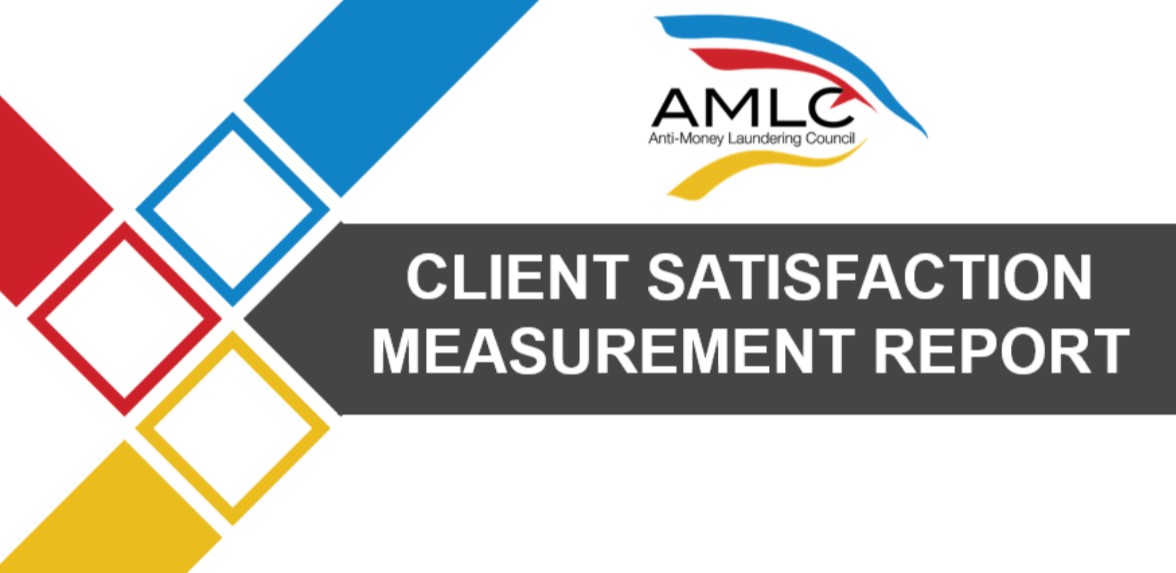 2024 (First Edition)
2024 (First Edition)